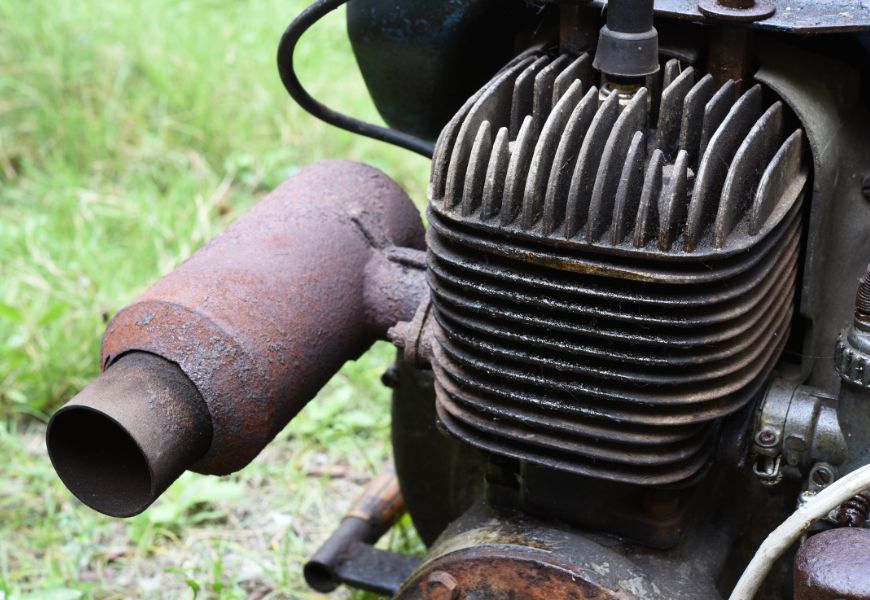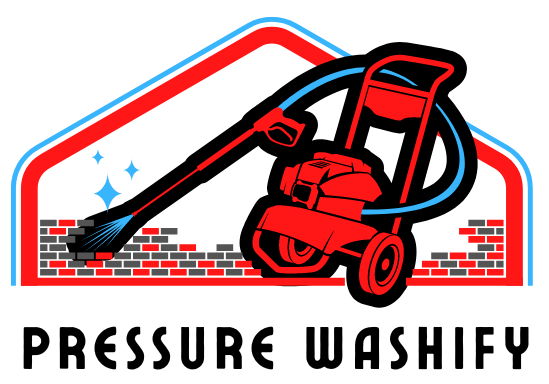Affiliate Disclaimer: This post may contain affiliate links, meaning we get a commission if you decide to make a purchase through our links, at no extra cost to you.
A pressure washer is a powerful tool used for various cleaning tasks, such as removing dirt, grime, and debris from surfaces. Whether you need to clean your patio, driveway, or even your car, a pressure washer can make the task much easier. However, before using a pressure washer, it is important to understand its fuel requirements.
So, does a pressure washer take mixed gas?
Yes and no, it depends on the type of engine in your pressure washer.
It takes a bit of engineering knowledge about engines to answer that question. In general, gas-powered pressure washers can be categorized into two types: 2-stroke engines and 4-stroke engines. The basic difference lies in the working of both engines.
Fuel Requirements for Gas-Powered Pressure Washers
When it comes to gas-powered pressure washers, it is important to understand the fuel requirements based on the type of engine it uses.
2-Stroke Engine Pressure Washers:

- 2-stroke engines require a fuel mixture of gasoline and oil for proper lubrication and engine performance.
- The fuel mixture ratio typically varies between 50:1 and 40:1, meaning 50 or 40 parts of gasoline are mixed with 1 part of oil, respectively.
- This fuel mixture is crucial for lubricating the engine’s internal moving parts as there is no separate oil lubrication system in a 2-stroke engine.
- Always refer to the manufacturer’s specifications to determine the correct fuel mixture ratio for your 2-stroke engine pressure washer.
4-Stroke Engine Pressure Washers:

- 4-stroke engines, on the other hand, operate using gasoline alone, similar to most cars and lawnmowers.
- These engines have a dedicated oil compartment that lubricates the engine’s internal components, eliminating the need for a fuel mixture.
- Simply fill the gas tank with regular gasoline without the need to mix it with oil.
- It is important to use the appropriate octane-level gasoline recommended by the manufacturer. This information can be found in the instruction manual or on the manufacturer’s website.
Understanding the distinction between 2-stroke and 4-stroke engine pressure washers is crucial. Using the wrong fuel can lead to performance issues and damage to the engine.
Consequences of Using Incorrect Fuel in Your Pressure Washer
- Reduced Engine Performance: Using the wrong fuel can lead to decreased power output and reduced efficiency in cleaning.
- Engine Damage: Incorrect fuel can cause damage to the internal components of the pressure washer’s engine, potentially resulting in costly repairs or even replacement.
- Warranty Violations: Using the wrong fuel mixture or type can void the manufacturer’s warranty, leaving you responsible for any repair or replacement costs.
- Performance Issues: Incorrect fuel can cause issues such as hard starting, stalling, or erratic operation of the pressure washer.
- Fuel System Contamination: Using the wrong fuel can lead to the build-up of deposits, clogging the fuel system and affecting the overall performance of the pressure washer.
- Increased Emissions: Incorrect fuel usage can result in higher emissions, contributing to pollution and environmental harm.
If you suspect any damage or issues with your pressure washer due to incorrect fuel usage, it is crucial to seek professional repair or assistance to prevent further problems.
Read more: Pressure Washer Maintenance
Conclusion

Understanding and following the fuel requirements of your gas-powered pressure washer is essential for its proper functioning and longevity. While electric pressure washers usually only require standard gasoline, gas-powered ones rely on a specific fuel mixture of gasoline and oil.
Using the wrong fuel in your pressure washer can result in engine damage, reduced performance, and potential warranty violations. To avoid these issues, always refer to the manufacturer’s guidelines for the correct fuel mixture ratio. Follow the instructions in the pressure washer’s manual or check the manufacturer’s website for specific recommendations.
By adhering to the correct fuel mixture ratio, you can ensure that your pressure washer operates efficiently and effectively, providing you with the cleaning power you need for various tasks.
Remember to drain the gas tank and replace it with the correct mixture if you accidentally use the wrong fuel. If you suspect any damage or issues with your pressure washer, it is crucial to seek professional repair to prevent further problems.









